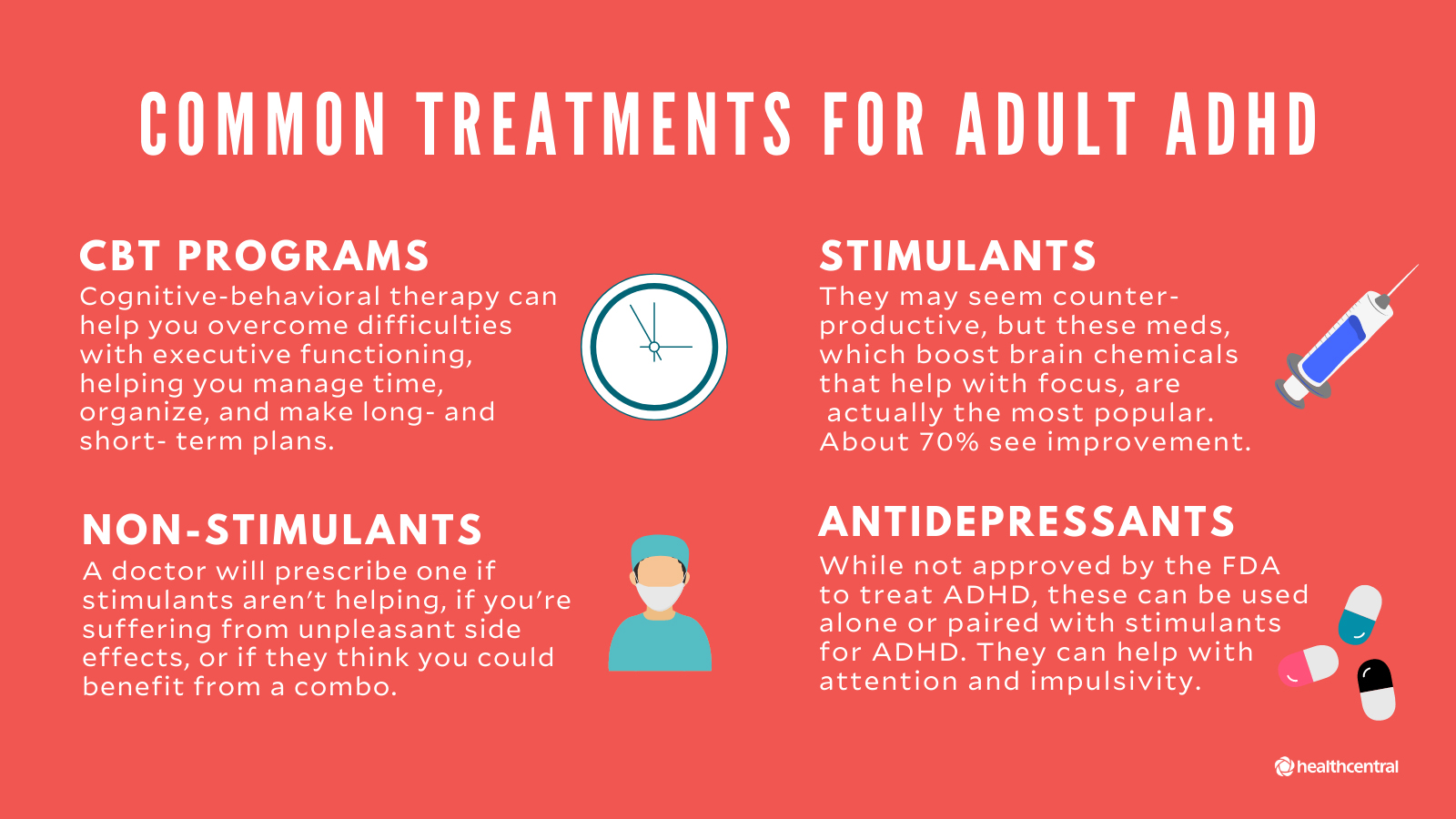Comprehensive Depression Treatment for Better Mental Health
Comprehensive Depression Treatment for Better Mental Health
Blog Article
The Benefits of Personalized ADHD Therapy Prepare For Better Outcomes
The application of tailored ADHD therapy plans has emerged as a crucial approach in boosting healing results for individuals affected by this problem (ADHD treatment). By identifying the special symptoms of ADHD in each person, these tailored interventions promote better involvement and motivation, ultimately leading to extra efficient coping strategies.
Recognizing ADHD Irregularity
Although Attention-Deficit/Hyperactivity Problem (ADHD) is typically perceived as a single condition, its manifestations can differ considerably amongst individuals. This irregularity is influenced by a variety of aspects, including age, sex, existing together problems, and environmental contexts. For instance, kids with ADHD may display hyperactive habits, while grownups may mostly battle with focus deficits. Sex differences additionally play a role, as men are more often detected with ADHD and typically present much more overt signs, whereas ladies may provide with much less obvious inattentiveness.
Moreover, people with ADHD might experience a range of psychological and behavior challenges, such as stress and anxiety or opposite defiance, that can make complex medical diagnosis and treatment. The interaction of these factors can result in diverse experiences of ADHD, requiring a nuanced understanding of the condition. It is likewise worth keeping in mind that ADHD can provide differently throughout numerous social contexts, affecting just how signs are identified and attended to. This understanding emphasizes the relevance of identifying ADHD as a complex problem, which requires customized techniques to treatment that take into consideration the special requirements and experiences of each individual.
Key Elements of Customization
Personalized ADHD therapy strategies are grounded in numerous vital components that guarantee reliable monitoring of the condition. First, a comprehensive analysis is vital, including standard score ranges, interviews, and behavioral monitorings. This extensive evaluation enables medical professionals to comprehend the individual's special symptoms, toughness, and difficulties.
2nd, the involvement of numerous stakeholders, including moms and dads, teachers, and the individual, adds to an alternative sight of the person's needs. Collaboration cultivates an encouraging environment that can adapt to the person's context and lifestyle.
Third, treatment strategies ought to be adaptable and versatile, allowing for adjustments based upon ongoing comments and the person's evolving needs. This versatility makes it possible for the integration of various restorative strategies, such as behavior treatments, psychoeducation, and medication management.
Additionally, cultural and contextual variables have to be considered. Identifying the individual's history, worths, and choices makes certain that the treatment matters and respectful.
Finally, routine follow-ups and evaluations are vital to monitor progress and make required adjustments. By focusing on these crucial elements, individualized ADHD therapy strategies can dramatically boost the performance of treatments, causing enhanced results for people with ADHD.
Improved Interaction and Motivation
To efficiently promote enhanced involvement and inspiration in individuals with ADHD, it is vital to integrate techniques that resonate with their interests and toughness. Individualized therapy plans that line up with an individual's passions can bring about raised engagement in restorative activities, fostering a feeling of possession and enthusiasm for the process.
Making use of interactive and imaginative techniques can likewise considerably enhance inspiration. For instance, integrating gamification elements or real-world applications of abilities can make tasks much more appealing and pertinent. This not only captures attention however also enhances discovering via satisfying experiences.
Furthermore, establishing achievable and purposeful goals customized to the alcohol counseling individual can strengthen motivation. When people see their progress in the direction of personally considerable objectives, they are most likely to stay engaged. Routine responses and recognition of success can further sustain inspiration, developing a favorable comments loophole that urges continued initiative.
Finally, fostering a supportive atmosphere where people feel comprehended and valued can considerably influence their interaction levels. When therapy plans are created collaboratively, incorporating input from the individual, they are most likely to feel bought their journey, eventually bring about improved results in handling ADHD.
Improved Coping Strategies
Developing enhanced dealing approaches is vital for people with ADHD, as it furnishes them with efficient devices to browse day-to-day obstacles. An individualized therapy strategy permits the identification of particular coping systems tailored to the individual's special requirements and situations - ADHD secondary depression treatment. Methods such as mindfulness, time administration skills, and organizational techniques can be integrated into daily routines, fostering a feeling of control and lowering anxiousness
Mindfulness practices, consisting of reflection and deep-breathing workouts, aid people with ADHD concentrate their focus and control their emotions. Time management techniques, such as using timers or breaking jobs right into smaller sized, workable steps, can mitigate feelings of bewilder. Furthermore, organizational tools like planners and lists can boost performance and liability.
Long-lasting Favorable Results
Applying personalized ADHD therapy strategies can result in significant long-term favorable end results for individuals. These tailored approaches, which take into consideration unique signs and symptoms, choices, and life scenarios, help with much more reliable administration of ADHD symptoms with time. By concentrating on the specific requirements of the individual, these strategies enhance adherence to therapy protocols and foster better engagement in healing activities.

In addition, individualized treatment strategies can dramatically decrease the risk of comorbid problems, such as stress and anxiety and depression, which are often connected with ADHD. Early intervention and regular support aid individuals construct durability and coping strategies, advertising overall psychological health and wellness.
Inevitably, the long-term favorable end results of customized ADHD therapy plans not only boost the lifestyle for people yet also add to their general health and success in numerous life domains. This alternative technique emphasizes the relevance of personalized treatment in taking care of ADHD effectively.
Conclusion

Report this page